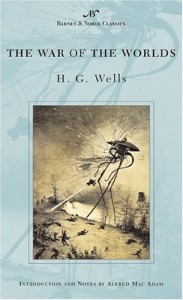Inspired by Science
I blog on katerauner.wordpress.com/ about the science that inspires my novels and poems. I read a lot of non-fiction, too.
War of the Worlds - a classic you don't know as well as you think

A Great Depression era broadcast has become an annual Halloween staple in America. This year marks the 75th anniversary of the radio broadcast of a version of "War of the Worlds" that, according to urban legend, sent America into a brief panic over invading Martians.
Contrary to popular belief, reinforced by annual repetition, almost nobody was fooled by Welles’ broadcast. (According to slate.com. Oddly, snopes.com does not have an article on this subject. But I'm prepared to believe slate: I always found the tale improbable.) The legend began because:
"Radio had siphoned off advertising revenue from print during the Depression, badly damaging the newspaper industry. So the papers seized the opportunity presented by Welles’ program to discredit radio as a source of news. The newspaper industry sensationalized the panic to prove to advertisers, and regulators, that radio management was irresponsible and not to be trusted... The legend of the panic grew exponentially over the following years." http://slate.me/1g8nH2N
I bet you know the story of the H. G. Wells classic, first published in 1898. A few immortal elements have survived from the book to the movies: Giant three-legged Martian machines that wreak death and destruction on humanity, death rays, terrified survivors hiding in a ruin as a Martian mechanical "eye" sweeps through, and the iconic ending (spoiler alert - if anyone out there doesn't already know) where the Martians are killed and the Earth saved when the invaders are killed by the humble common cold.
Have you ever read the book? I find Wells' actual theme fascinating and very English: that complacency is foolish and trusting the government to save you will be fatal.
Read the book. It's not that long (207 pages in my Readers' Digest version) and well worth your time. Not only is it immortal science fiction from the end of the Victorian era, which inspires endless nostalgia in America. It seems socially modern and relevant. The endless explosions of modern special effects, while technically amazing, can't really compete. The explosions can't compete with the real-life story of newspapers trying to fight off radio, either.


